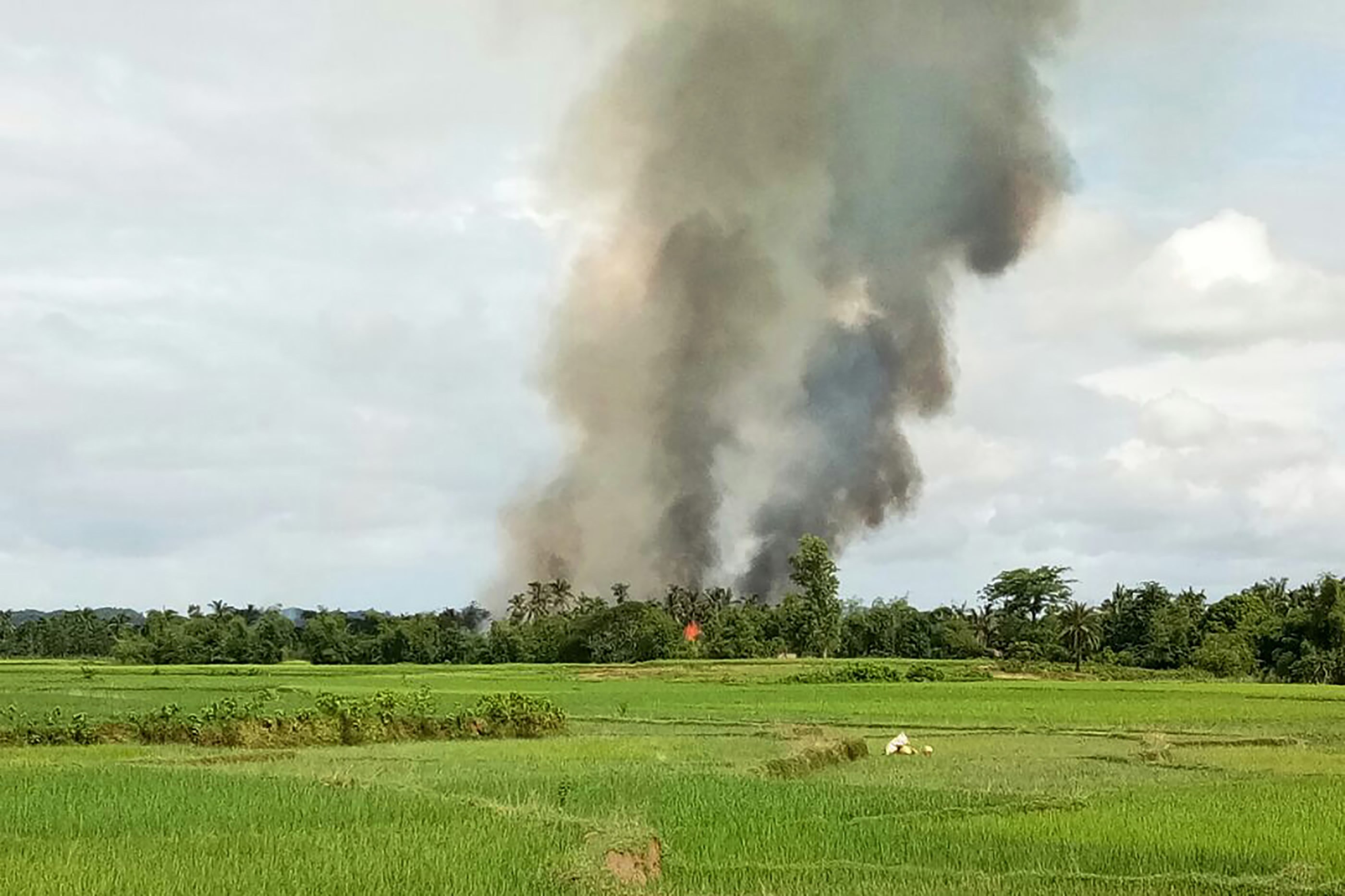Myanmar’s northwestern Rakhine State is burning. Quite literally.
Nearly 3,000 houses have been burned down in Rohingya-majority areas in less than ten days as the restive state witnesses a mass exodus of refugees into neighboring Bangladesh. The burnings follow a series of coordinated attacks by ethnic Rohingya militants on August 25 against dozens of Myanmarese government checkpoints and bases.
The UN's refugee agency said on Sunday that about 73,000 Rohingya refugees have fled to Bangladesh from Myanmar since the latest round of fighting broke out. And according to the Myanmarese military, the death toll has climbed to over 400, including many alleged Rohingya insurgents.
The Rohingya Muslims are branded illegal immigrants in Myanmar and mostly denied citizenship. The minority ethnic group make up the vast majority of the dead and displaced since 2012.
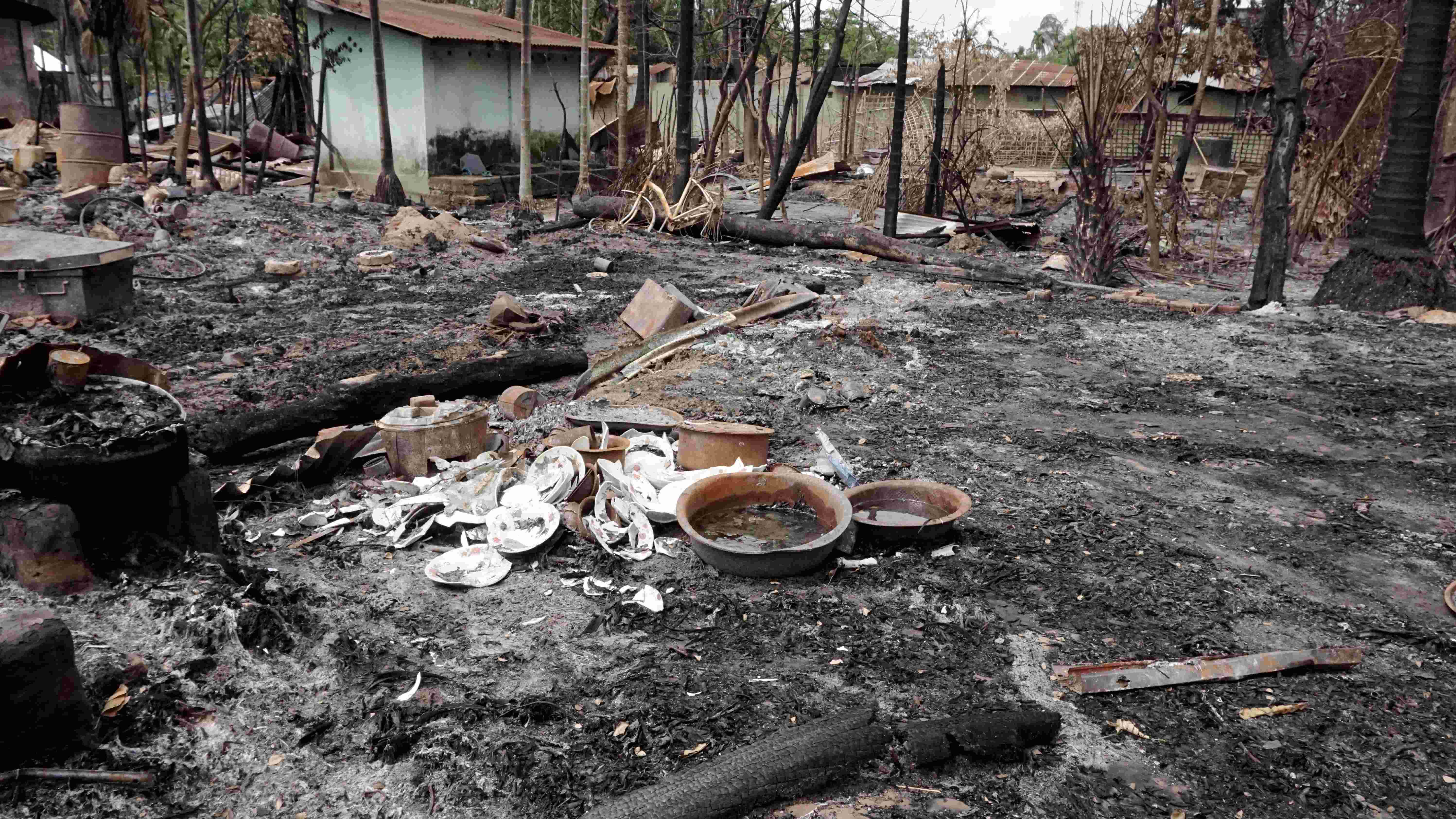
Broken dishes can be seen in the burned out remains of a house in Myo Thu Gyi Muslim village near Maungdaw town in northern Rakhine State on August 31, 2017. /AFP Photo
Broken dishes can be seen in the burned out remains of a house in Myo Thu Gyi Muslim village near Maungdaw town in northern Rakhine State on August 31, 2017. /AFP Photo
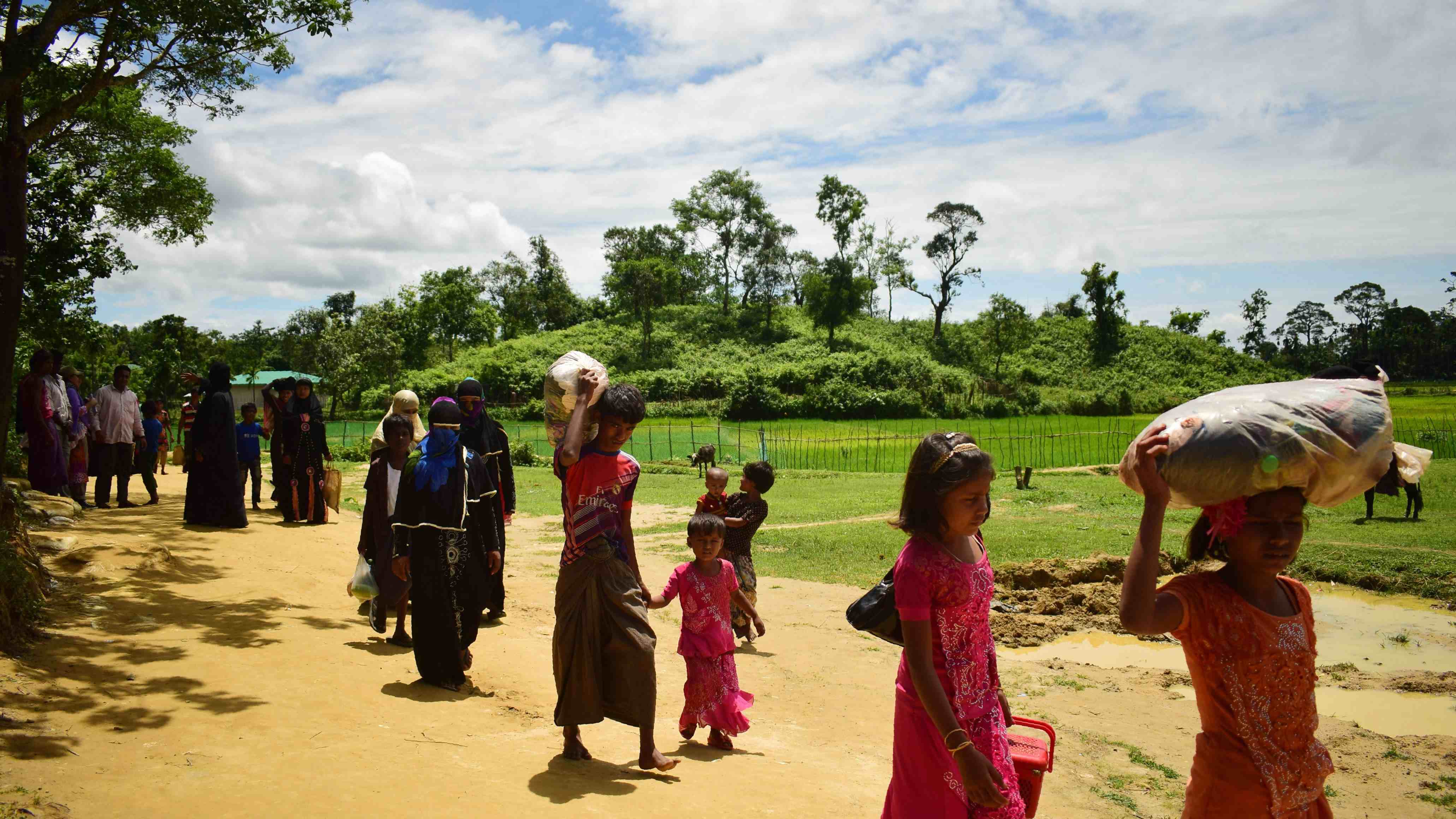
Rohingya refugees walk pass Balukhali refugee camp near Myanmar's border, in Bangladesh on August 27, 2017. /AFP Photo
Rohingya refugees walk pass Balukhali refugee camp near Myanmar's border, in Bangladesh on August 27, 2017. /AFP Photo
The latest spate of violence, the worst in years, compelled the UN chief Antonio Guterres to warn of a “looming humanitarian catastrophe” in Myanmar, with the World Food Program (WFP) late on Saturday announcing the suspension of food aid in the restive state. Relief agencies, including WFP, have repeatedly been accused by Myanmar authorities of allowing their rations to fall into the hands of Rohingya militants.
Guterres also urged security forces to show restraint. "The secretary-general is deeply concerned by the reports of excesses during the security operations conducted by Myanmar's security forces in Rakhine State and urges restraint and calm to avoid a humanitarian catastrophe," said a UN spokesman. Guterres stressed that it was the government's responsibility to provide security and allow aid agencies to reach those in need.
On Sunday, Myanmar urged Muslims in the troubled northwest to cooperate in the search for insurgents. "Islamic villagers in northern Maungtaw have been urged over loudspeakers to cooperate when security forces search for Arakan Rohingya Salvation Army (ARSA) extremist terrorists, and not to pose a threat or brandish weapons when security forces enter their villages," the state-run Global New Light of Myanmar said on Sunday.
Rohingya issue 'besmirching' Myanmar
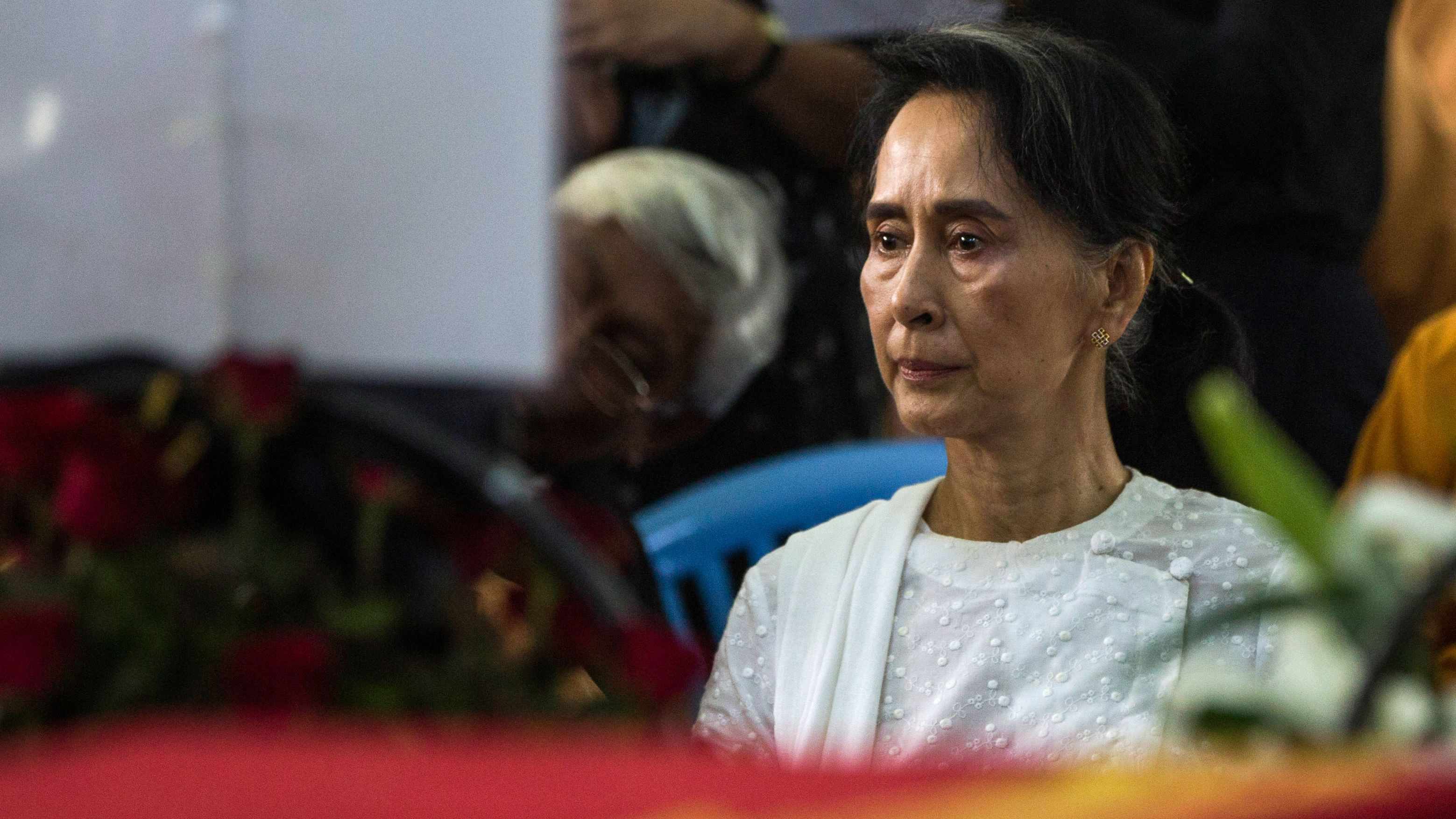
The treatment of Buddhist-majority Myanmar's roughly 1.1 million Rohingya Muslim population is perhaps the biggest challenge facing leader Aung San Suu Kyi. /AFP Photo
The treatment of Buddhist-majority Myanmar's roughly 1.1 million Rohingya Muslim population is perhaps the biggest challenge facing leader Aung San Suu Kyi. /AFP Photo
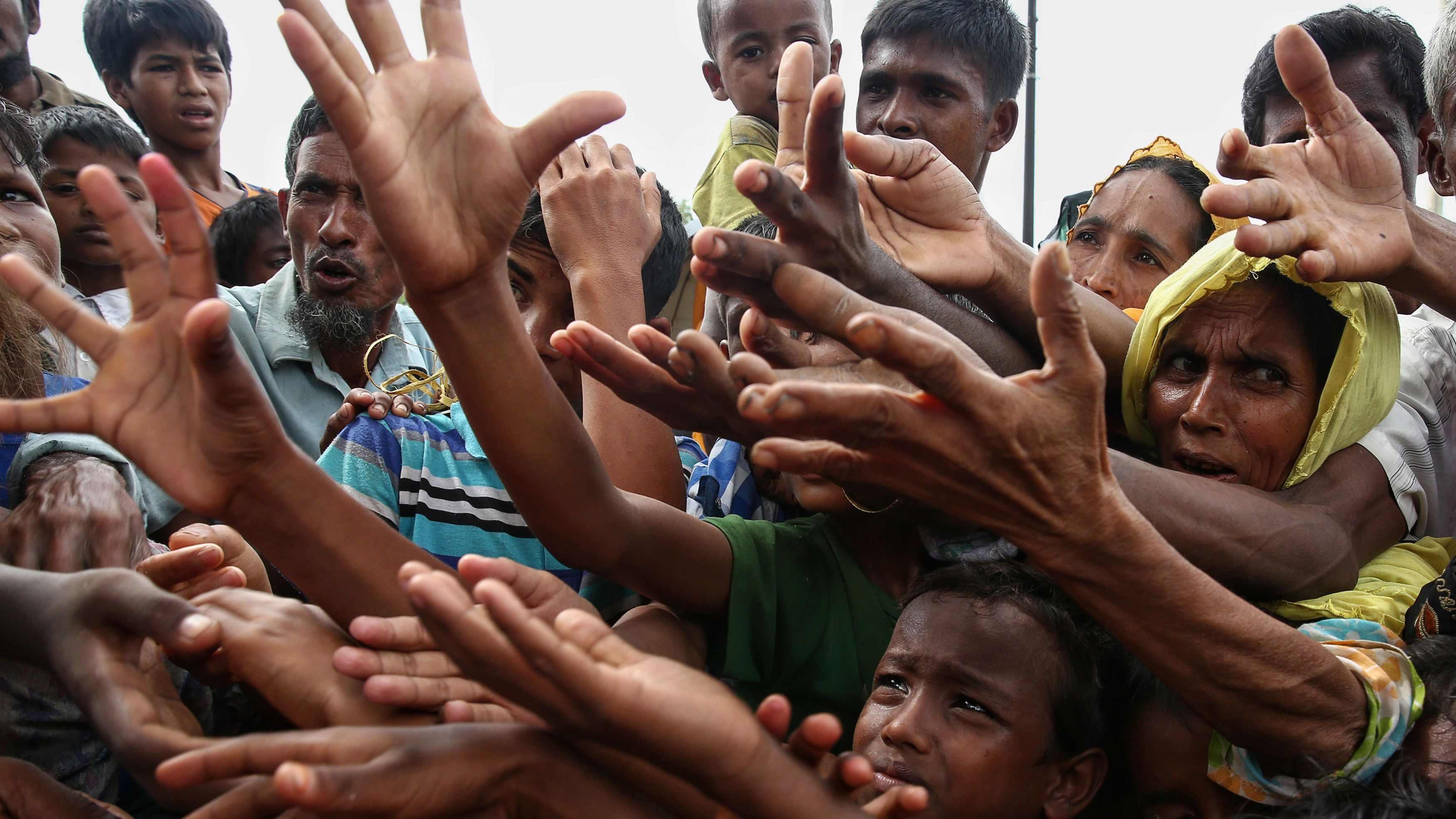
Rohingya refugees reach for food aid at Kutupalong refugee camp in Ukhiya near the Bangladesh-Myanmar border, on August 30, 2017. /AFP Photo
Rohingya refugees reach for food aid at Kutupalong refugee camp in Ukhiya near the Bangladesh-Myanmar border, on August 30, 2017. /AFP Photo
The treatment of Buddhist-majority Myanmar's roughly 1.1 million Rohingya Muslim population is perhaps the biggest challenge facing leader Aung San Suu Kyi, accused by critics of being silent on the issue.
British Foreign Secretary Boris Johnson on Sunday warned Suu Kyi that the treatment of Rohingya is "besmirching" the country's reputation, the BBC reported. Johnson called on Suu Kyi, the country's de facto leader, to "use her remarkable qualities" to end prejudice against Muslims in Rakhine state.
Earlier on Friday, Turkish President Recep Tayyip Erdogan accused Myanmar of "genocide" against the Rohingya minority, AFP reported. "There is a genocide there," Erdogan said in a speech in Istanbul during the Islamic Eid-al-Adha feast. "Those who close their eyes to this genocide perpetuated under the cover of democracy are its collaborators," he added.
Erdogan said he would raise the issue at the next UN General Assembly in New York later this month.
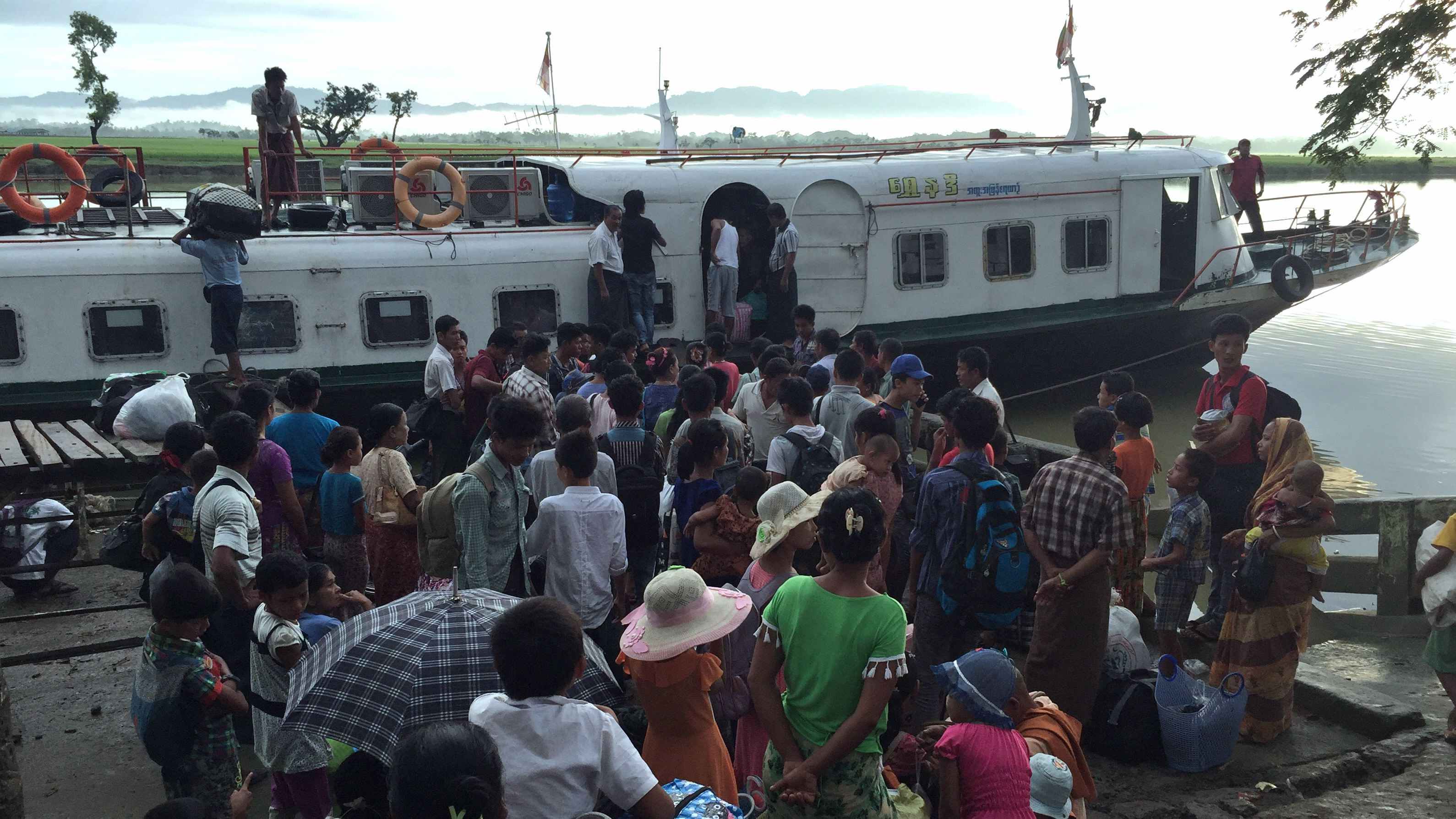
People displaced from communal violence board a boat at the Buthidaung jetty as they flee south to the city of Sittwe, in Myanmar's Rakhine State, on September 1, 2017. /AFP Photo
People displaced from communal violence board a boat at the Buthidaung jetty as they flee south to the city of Sittwe, in Myanmar's Rakhine State, on September 1, 2017. /AFP Photo
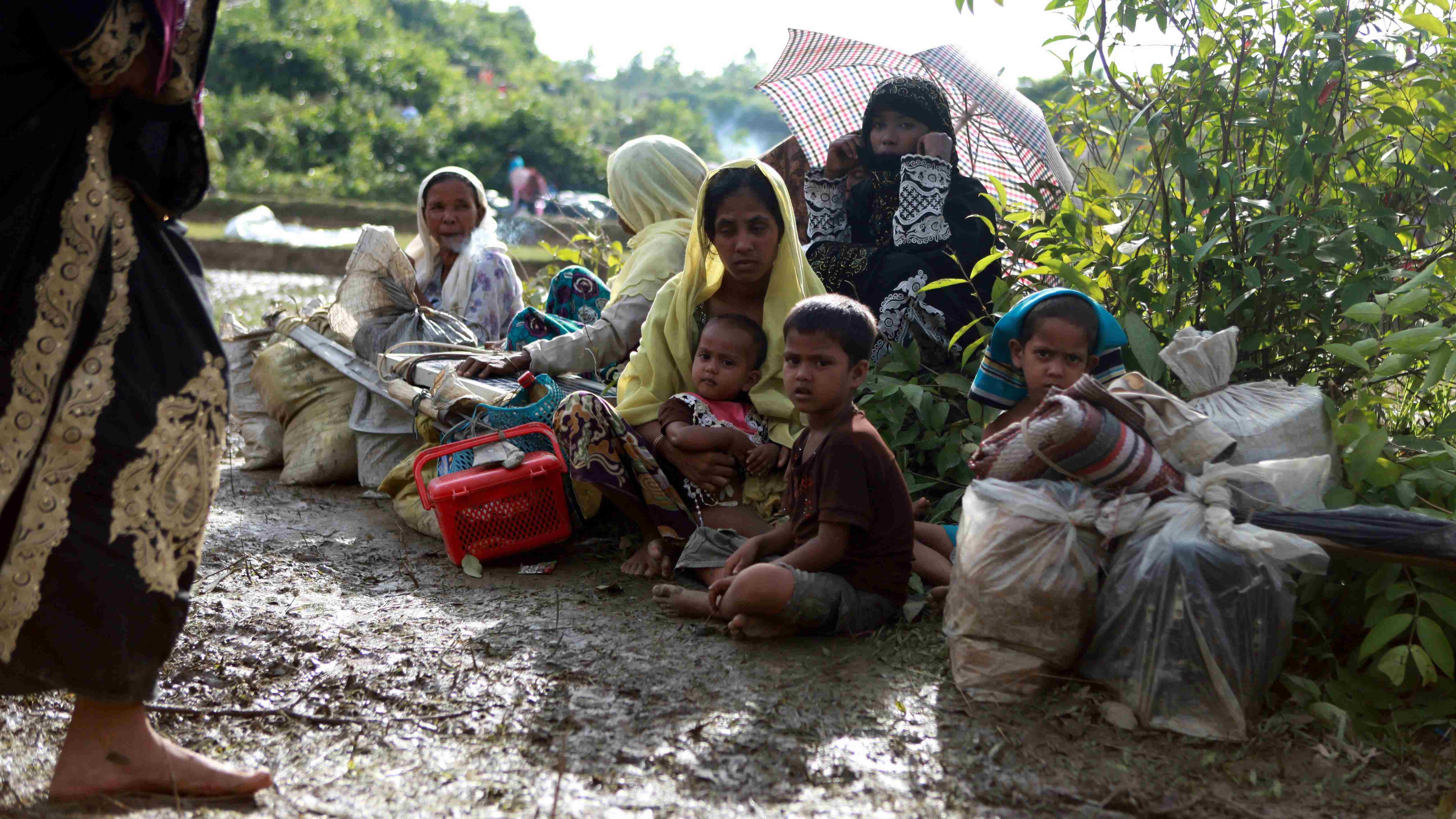
A Rohingya family sit beside a road in Nykkhongchhari, Bangladesh on September 2, 2017, after fleeing violence in Myanmar. /AFP Photo
A Rohingya family sit beside a road in Nykkhongchhari, Bangladesh on September 2, 2017, after fleeing violence in Myanmar. /AFP Photo
Also on Friday, India said Prime Minister Narendra Modi will visit Myanmar this week and discuss the exodus of the Rohingya ethnic minority with Suu Kyi's government. Modi will arrive in the capital Naypyidaw on Tuesday after attending the BRICS summit in Xiamen, China.
"We will be discussing how India can help them in addressing the situation that is prevailing in the state," Sripriya Ranganathan, a senior official in India's foreign ministry, told reporters. "Lot of countries are impacted... but ultimately it's for the government of Myanmar to address the situation," she said.
Can China mediate between Myanmar, Bangladesh?
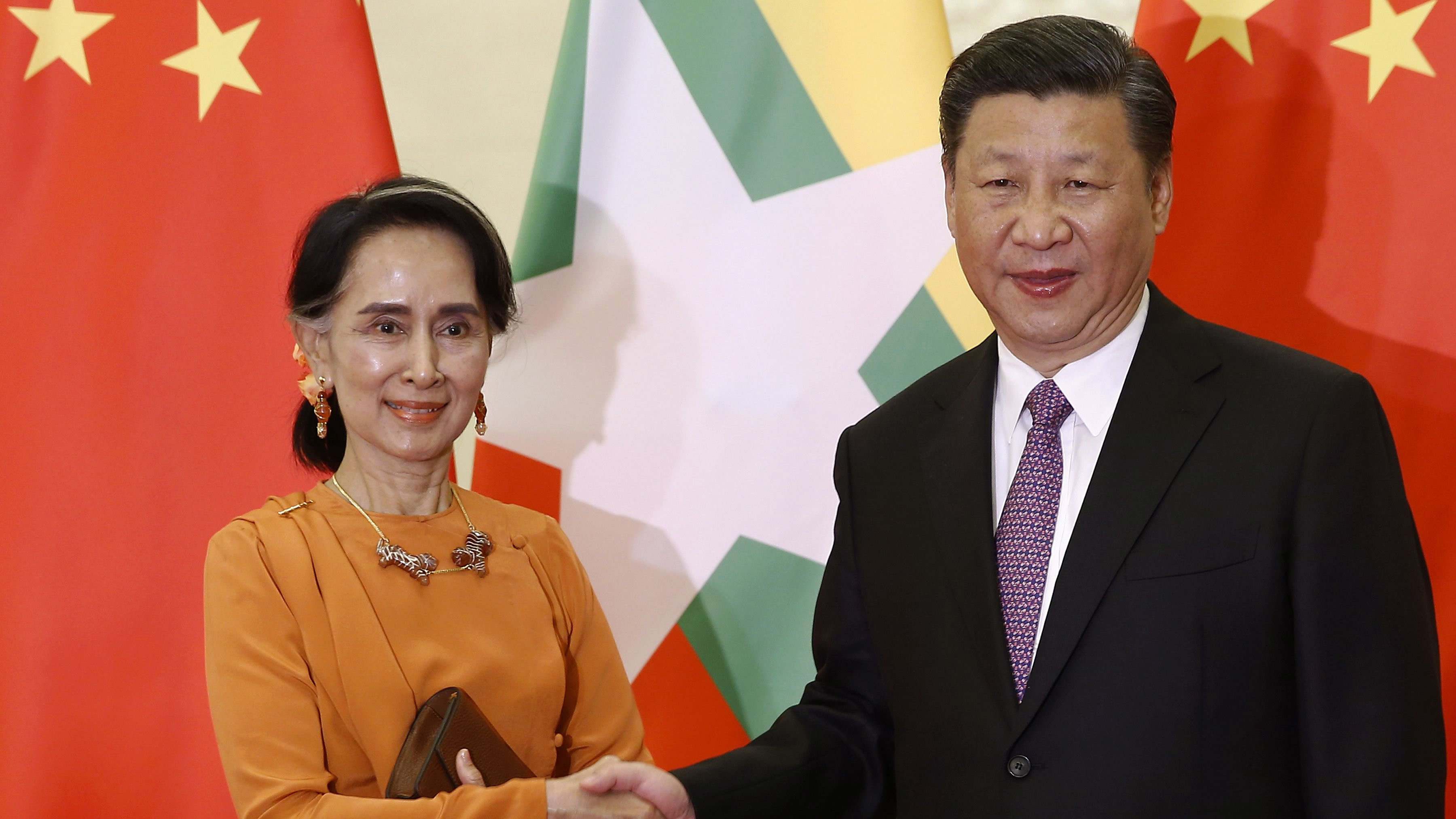
Myanmar State Counselor Aung San Suu Kyi (L) with Chinese President Xi Jinping during a meeting at the Great Hall of the People in Beijing on May 16, 2017. /AFP Photo
Myanmar State Counselor Aung San Suu Kyi (L) with Chinese President Xi Jinping during a meeting at the Great Hall of the People in Beijing on May 16, 2017. /AFP Photo
Earlier in April, China offered to help tackle the diplomatic row between Bangladesh and Myanmar over the displacement of Rohingyas, Reuters reported quoting Bangladesh foreign ministry officials.
Chinese special envoy Sun Guoxiang, during a meeting with Bangladesh Foreign Secretary Shahidul Haque in Dhaka, urged Bangladesh to resolve the row with Myanmar bilaterally, but also said Beijing stood ready to help in the matter, a foreign ministry official in Dhaka told Reuters.
China has strong ties with both Myanmar and Bangladesh, helping in infrastructure development in both countries.
Who is to be blamed for the burnings?
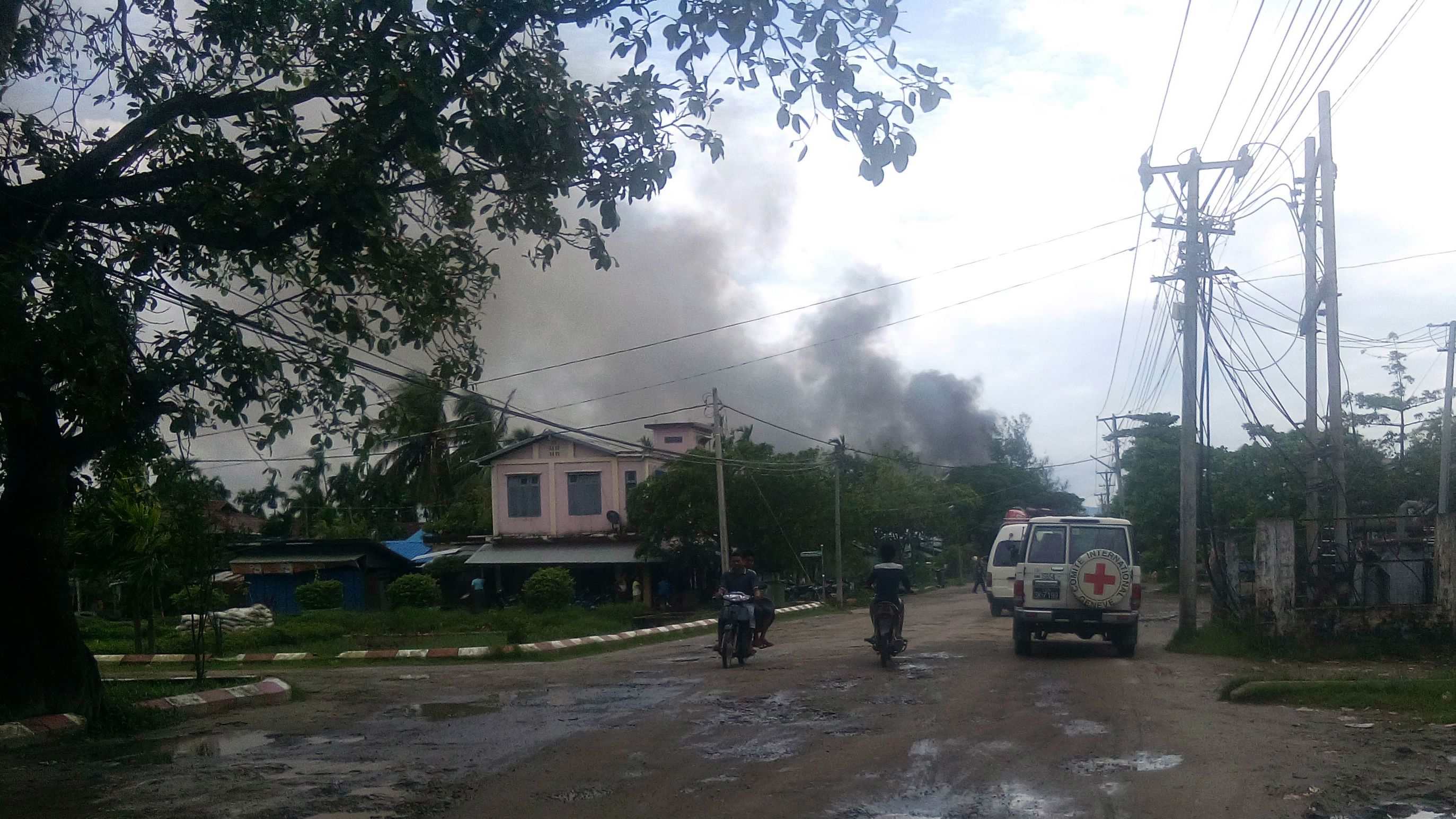
The International Committee of the Red Cross (ICRC) convoy is seen near a burned area in the downtown of Maungdaw township in Rakhine State in Myanmar on August 28, 2017. /AFP Photo
The International Committee of the Red Cross (ICRC) convoy is seen near a burned area in the downtown of Maungdaw township in Rakhine State in Myanmar on August 28, 2017. /AFP Photo
Myanmar officials have accused ARSA of setting ablaze the homes of the minority Rohingyas in Rakhine State. "A total of 2,625 houses from Kotankauk, Myinlut and Kyikanpyin villages and two wards in Maungtaw were burned down by the ARSA extremist terrorists," the state-run Global New Light of Myanmar said. ARSA has been declared a terrorist organization by the government. The group claimed responsibility for coordinated attacks on security posts last week.
However, some of the civilians fleeing the country put the blame on Myanmarese soldiers. "Our house was torched by the military... We tried to flee towards the mountain but they shot dead my two children along with their mother. I managed to escape with my other kids," Rohingya refugee Jamal Hossain was quoted as saying in a report by Qatar-based Al-Jazeera.
Last Tuesday, Human Rights Watch (HRW) cited satellite images showing the annihilation of several villages.
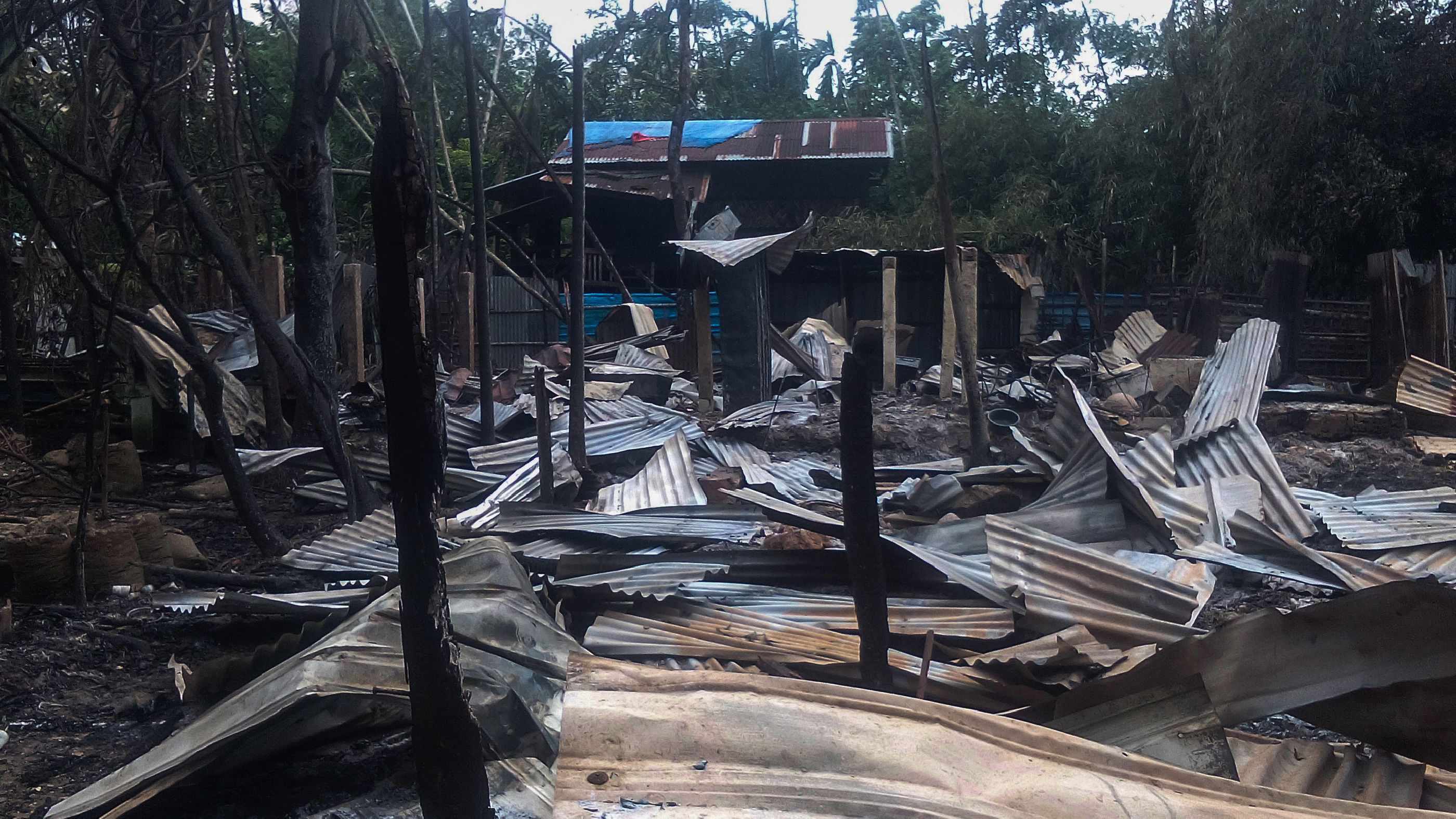
Burned out remains of houses are seen in Maungdaw township in Rakhine State in Myanmar on August 28, 2017. /AFP Photo
Burned out remains of houses are seen in Maungdaw township in Rakhine State in Myanmar on August 28, 2017. /AFP Photo
“New satellite data is consistent with widespread burnings in at least 10 areas in northern parts of Myanmar's Rakhine State… Satellites initially detected active fires in the early afternoon of August 25 in the village tracts of Zay Di Pyin and Koe Tan Kauk in Rathedaung township. On August 28, satellites located fires in another eight locations from mid-morning to early afternoon, including in Maungdaw town and several other villages in Maungdaw township,” HRW said in a statement posted on its official website.
Although the Myanmarese government and army blame Rohingya residents and militants for the burning of some structures, they have not been able to substantiate their allegations with any evidence thus far, according to HRW. Both ARSA insurgents and the Myanmar army have accused each other of committing abuses.
What triggered the latest spate of violence?
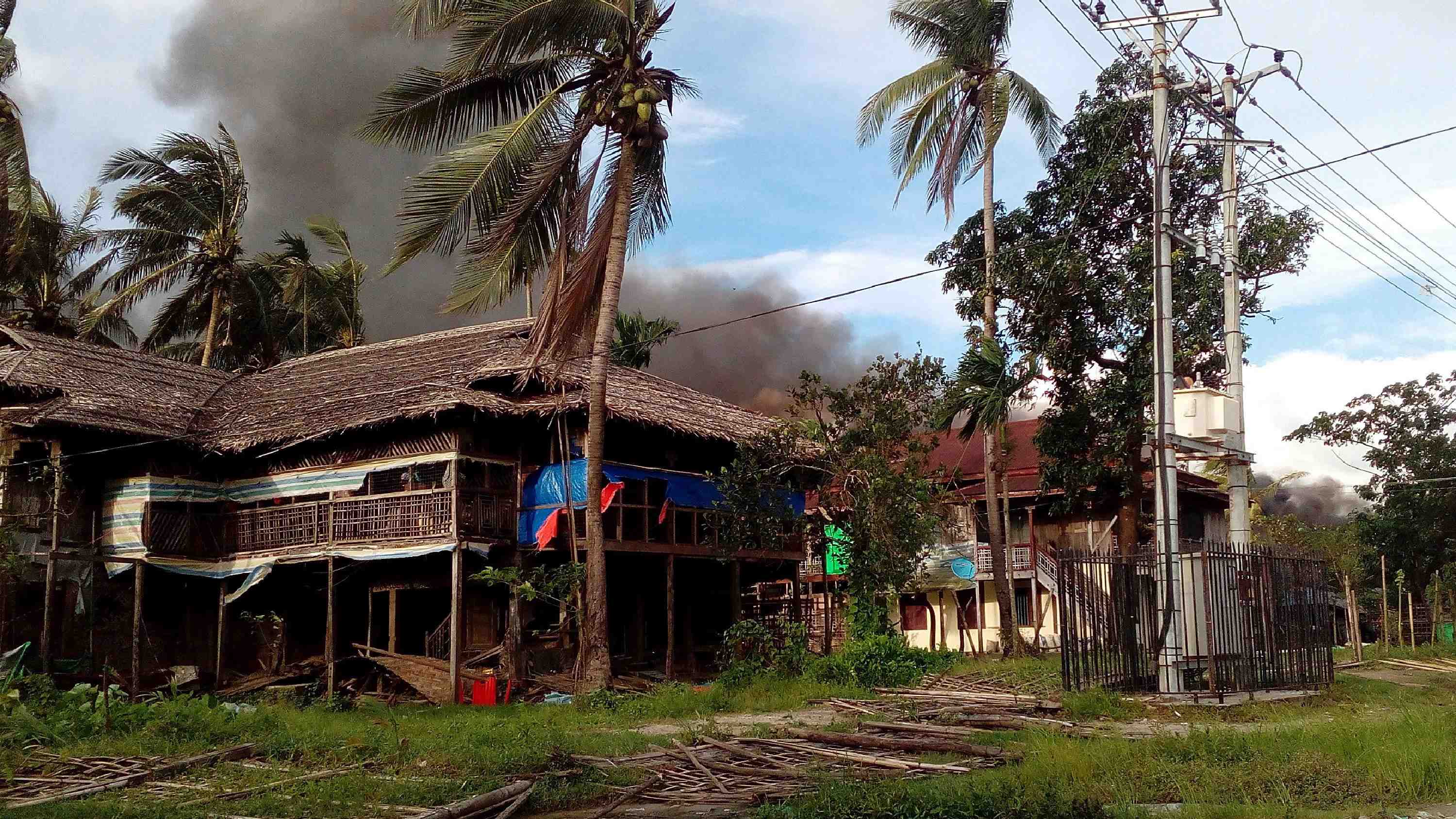
Smoke billows from burned houses in Maungdaw township in Rakhine State in Myanmar, on August 27. /AFP Photo
Smoke billows from burned houses in Maungdaw township in Rakhine State in Myanmar, on August 27. /AFP Photo
On August 25, ARSA militants attacked at least two dozen different police posts and checkpoints and one military base across three townships in Rakhine State. The government initially reported that dozens of people were killed in the fighting, including 11 members of the security forces.
The attacks followed a buildup of military forces with the deployment of the 33rd Light Infantry Battalion in Rohingya-majority areas of Rakhine State. According to local media reports, the government has intensified security operations in the area.
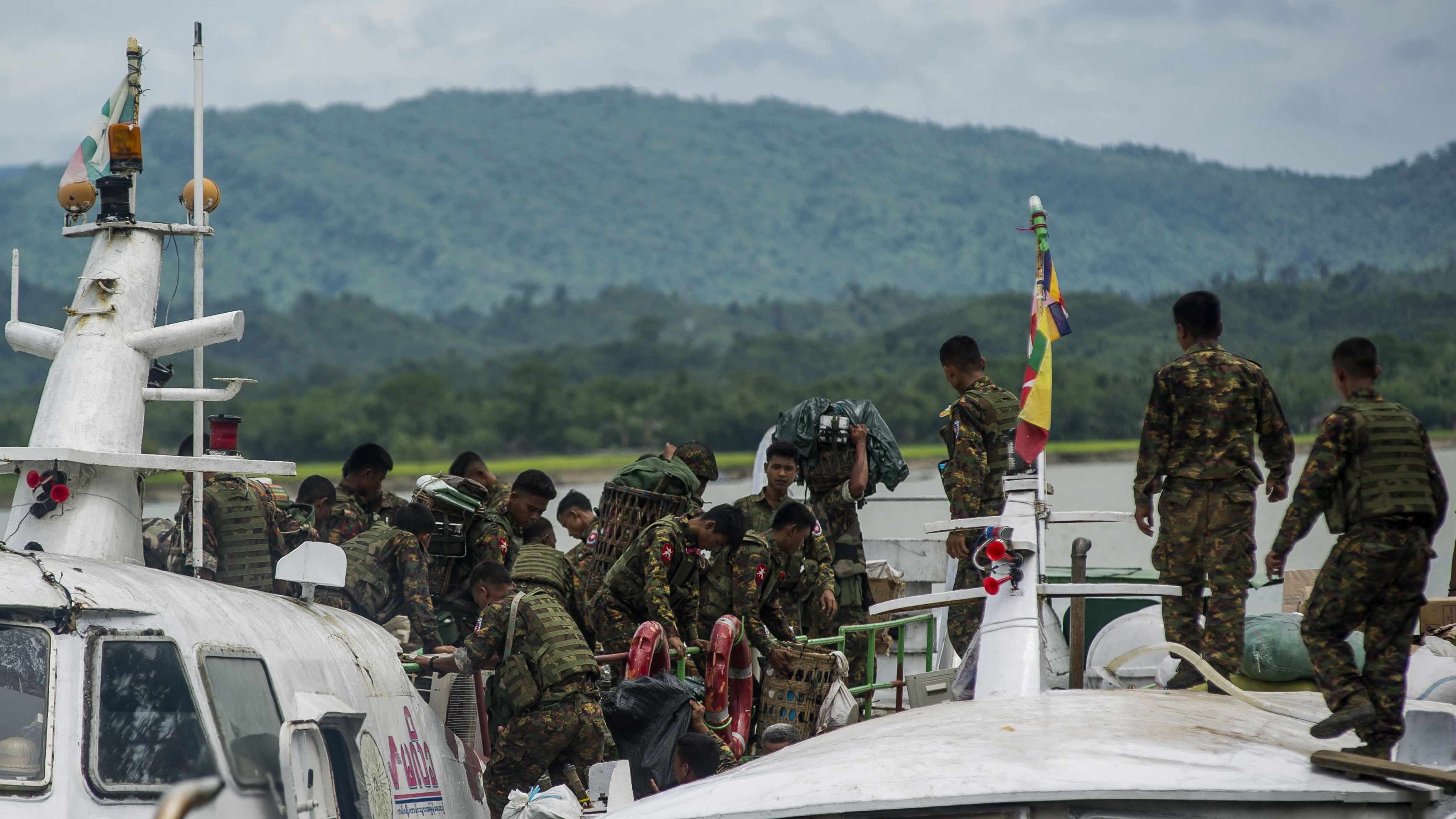
Myanmarese soldiers arrive at Buthidaung jetty in Rakhine State on August 29, 2017. /AFP Photo
Myanmarese soldiers arrive at Buthidaung jetty in Rakhine State on August 29, 2017. /AFP Photo
On Friday, Myanmar's army chief said nearly 400 people have died in the violence, among them 370 Rohingya militants, while 11,000 ethnic Rakhine Buddhists, Hindus and other minority groups have been internally displaced. Accounts from Rohingya refugees in Bangladesh and Buddhists who fled to Sittwe, the Rakhine State capital, indicate the death toll may be much higher, AFP reported.
“Widespread burning of this sort in Rakhine State has not been seen since Rohingya militants attacked government security forces on October 9, 2016. The Rohingya militant group ARSA, which was then known as Harakah al Yaqin, took responsibility for those attacks. At that time, the Myanmar Army launched so-called ‘clearance operations’ in areas where it assumed militants were hiding, committing numerous and serious human rights violations against the Rohingya,” the HRW statement said.
Human Rights Watch documented extrajudicial killings and the rape of women and girls, in addition to the burning of structures, it claimed.
Rohingya refugees offer Eid prayers in Bangladesh
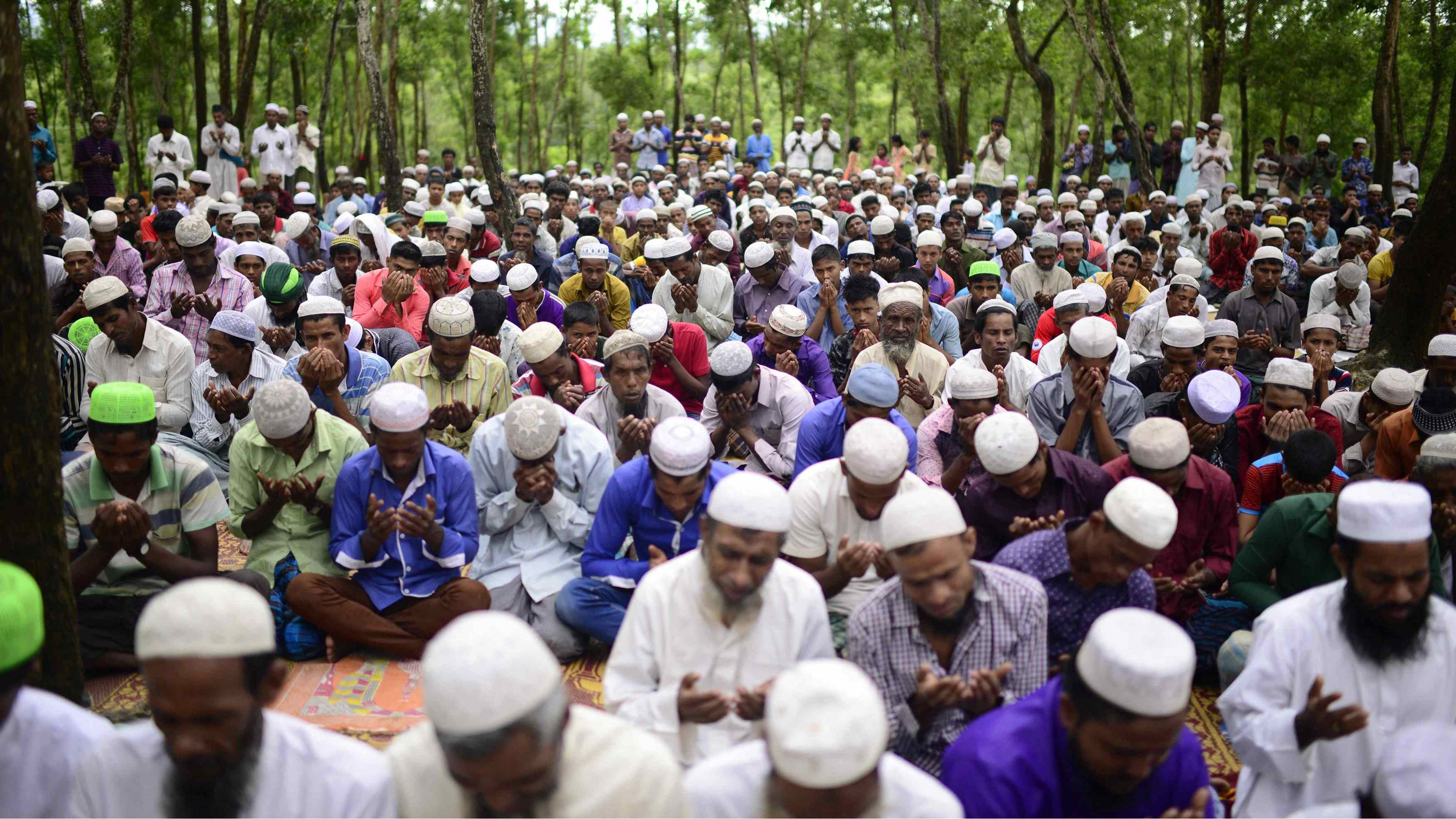
Rohingya refugees offer Eid prayer at Kutupalong refugee camp in Ukhiya near the Bangladesh-Myanmar border on September 2, 2017. /AFP Photo
Rohingya refugees offer Eid prayer at Kutupalong refugee camp in Ukhiya near the Bangladesh-Myanmar border on September 2, 2017. /AFP Photo
In a related development, scores of Rohingya refugees offered Eid-al-Adha prayers on Saturday in Bangladesh, many of them having recently fled from Myanmar
"I had everything at my home... but now I've become a refugee. There's nothing much to celebrate. Yet it is our duty to perform the Eid prayer," Makbul Hossain, 39, told AFP, having made the dangerous crossing from Rakhine to the Bangladesh border town of Cox's Bazar last week.
Since the latest violence broke out, the UNHCR estimated 73,000 have fled to Bangladesh, which already hosts 400,000 Rohingya as of 2017 and does not want more.
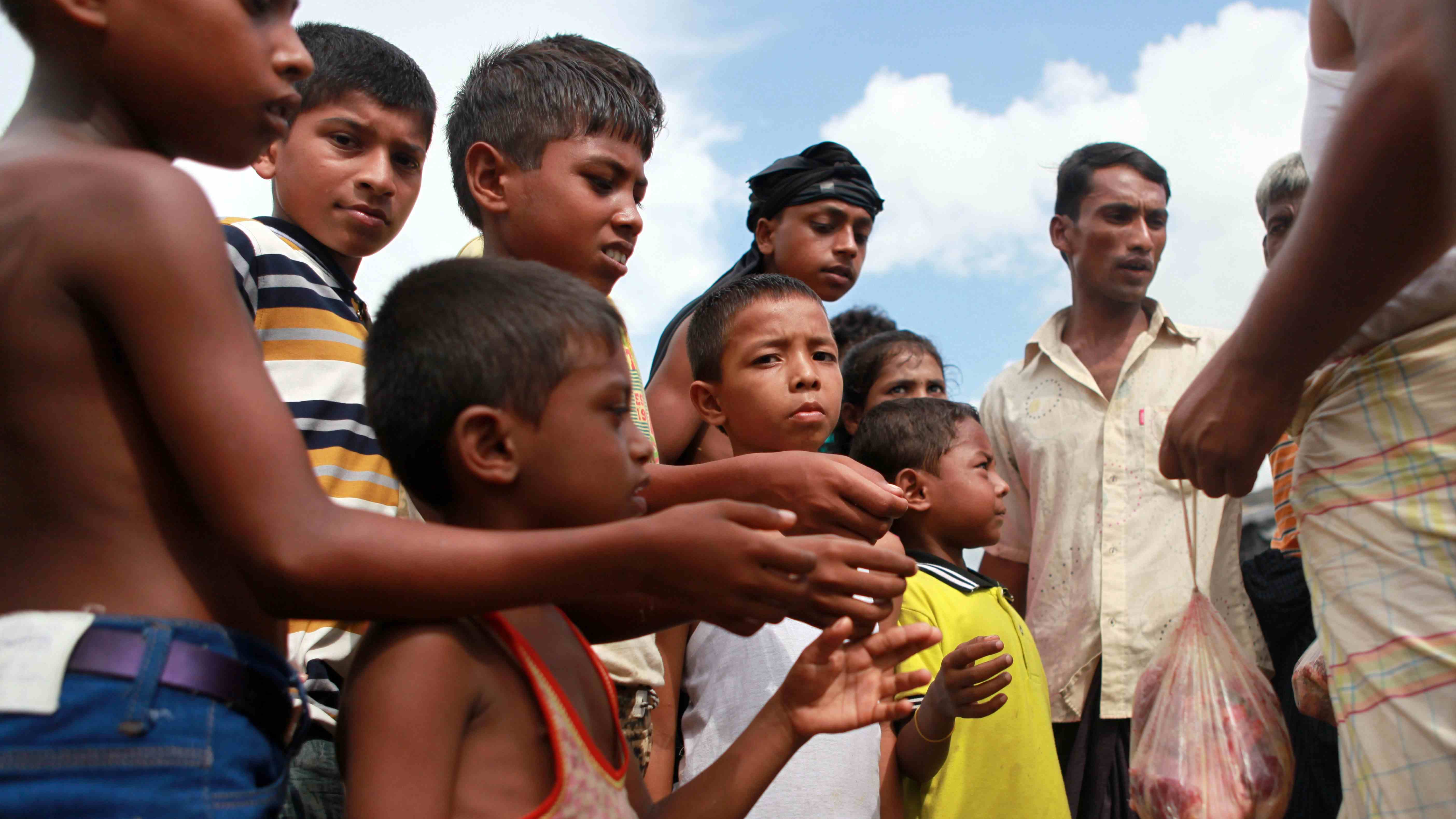
A Bangladeshi man distributes meat from a sacrificed animal to Rohingya refugees in no man's land near Nykkhongchhari, Bangladesh on September 2, 2017, during Eid-al-Adha. /AFP Photo
A Bangladeshi man distributes meat from a sacrificed animal to Rohingya refugees in no man's land near Nykkhongchhari, Bangladesh on September 2, 2017, during Eid-al-Adha. /AFP Photo
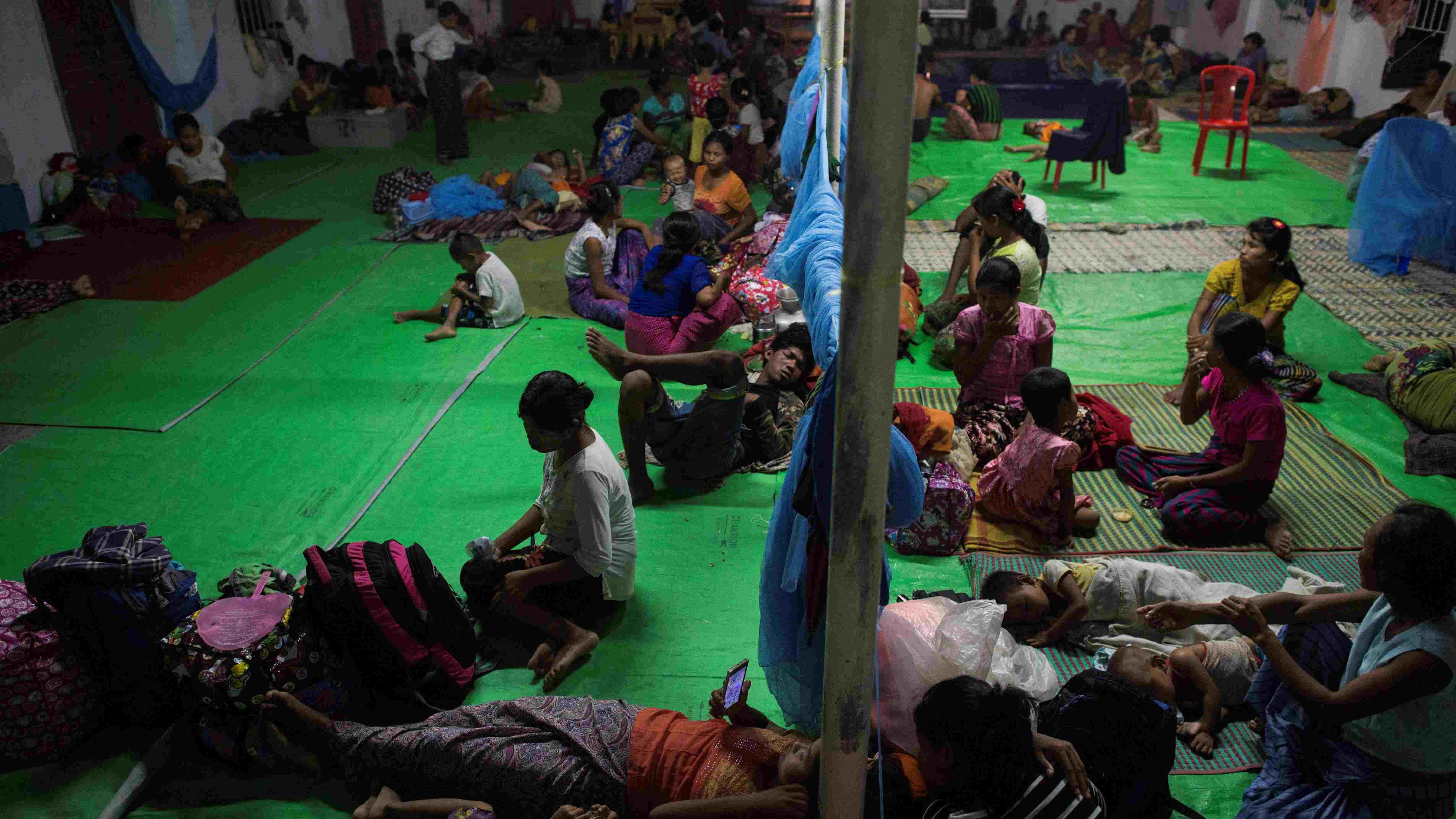
Ethnic Rakhine children who escaped from unrest take rest at a temporary shelter in Sittwe, Rakhine State, on August 30, 2017. /AFP Photo
Ethnic Rakhine children who escaped from unrest take rest at a temporary shelter in Sittwe, Rakhine State, on August 30, 2017. /AFP Photo
According to Turkey’s state-run Anadolu news agency, Turkish Foreign Minister Mevlut Cavusoglu told Bangladeshi authorities to "open your doors," adding that the country would cover the costs associated with letting in more Rohingya.
"We have called upon the Organization of Islamic Cooperation," Cavusoglu said. "We will organize a summit this year" on the issue. "We have to find a definitive solution to this problem."
The UN Security Council met behind closed doors on Wednesday to discuss the violence, but there was no formal statement on the crisis.
(With inputs from agencies)

